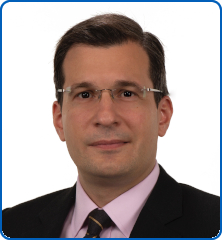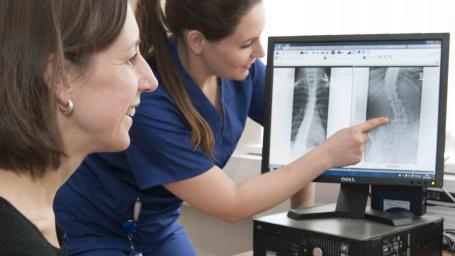We recognise that having someone close to you in Intensive Care can be distressing. Southmead ICU is a large unit and visiting can feel overwhelming. We are all here to help and support you. Please feel free to ask questions at any time.
Our Intensive Care team has a large number of staff including:
- Doctors
- Nurses
- Critical Care Practitioners
- Allied Healthcare Professionals
- Administrative and support staff
The ICU is divided into four separate areas know as pods, each containing 12 beds.
- Pod A beds 1-12.
- Pod B beds 13-24.
- Pod C beds 25-36.
- Pod D beds 37-48.
When your loved one is admitted to the ICU you will be told their Pod and room number. You will also be given a phone number to call directly to that room. You may be asked to set up a password to allow staff to confirm who you are. This makes sure your loved one's privacy and confidentiality is always maintained. You can phone us any time, day or night. We will always try to answer calls to the bedside straight away. Sometimes when we are providing patient care we may not be able to do this. If we do not answer the phone, please do not worry - we ask you to try again in 15 minutes.
Our ICU reception is open:
- Monday to Friday, 08:00 to 20:00.
- Saturday, Sunday, and bank holidays, 08:00to 19:00.
Outside these hours we have an intercom system which links directly to the Pods. Sometimes the clinical areas may be busy so do not be concerned if we do not answer straight away. Please try again in a few minutes.
Visiting ICU
Our ICU is located at Gate 37 on Level 2 of the Brunel Building. Our reception can be contacted directly on: 0117 414 1400
For information about how to find us visit Southmead Hospital | North Bristol NHS Trust
ICU visiting times are from 11:00 to 19:00.
We have a limit of two visitors at the bedside at any one time. This is in line with the overall Trust visiting policy. This ensures safety on the unit and respects the privacy of other patients and their families. We can allow children to visit when appropriate but please discuss this with one of our senior nurses beforehand.
There may be times when we ask you to leave the room whilst we provide essential patient care. You may wait in the reception waiting area until you are called back in. The rooms at the entrance of the pods are reserved for private discussions so we ask you to keep these rooms free.
Patient rooms
Each patient room has an ‘About me’ board. You can use this to display photographs or information about your loved one that you would like to share with us. This can include things like their favourite music or radio station which can help us to provide personalised care.
Around each bed there is a lot of essential equipment which helps us look after your loved one. Please try not to focus on this and concentrate on spending time with your relative or friend. They will be supported and encouraged by you being there. You can hold their hand, comfort and talk to them. Familiar faces and voices may help to orientate them and reassure them, even if they cannot respond at the time.
Updates
When a patient is admitted, we may need to perform urgent investigations and procedures. This can take some time and may mean that it is more than an hour before we can update you. We will always update you as soon as possible after your loved one is admitted.
We record contact details for the patient’s closest family and friends to keep you updated. It is helpful for us to have one member of the family as a point of contact. It is difficult for us to keep multiple relatives updated separately, so we ask to communicate mainly with those closest to the patient. We aim to update you regularly and certainly if there are major changes in your loved one’s condition. If you would like an update directly from the medical team or have any concerns about your loved one’s condition or their care, please let us know.
Accommodation
For visitors who come from further away we have limited accommodation for up to 48 hours. If accommodation is needed for longer, we can give you details of locally available options.
ICU Garden
We are very fortunate to have a dedicated garden space between Pods B and C in the ICU. This is a fantastic outdoor space which was made possible by support from the ICU charitable fund. It allows us to take patients outside during their recovery and rehabilitation.
Visiting the garden may not be appropriate for all patients, but will be considered on a case-by-case basis. This depends on each patient’s clinical condition and the treatment they are receiving at that time. If you think your loved one would enjoy or benefit from time in the garden, please discuss this with the nurse looking after them.



